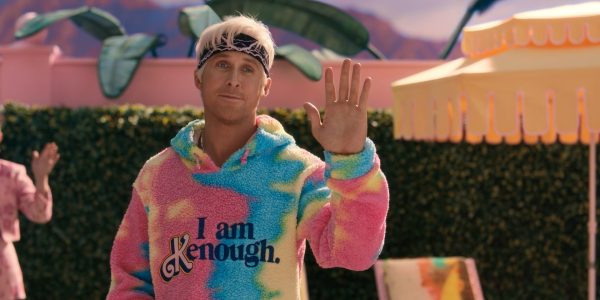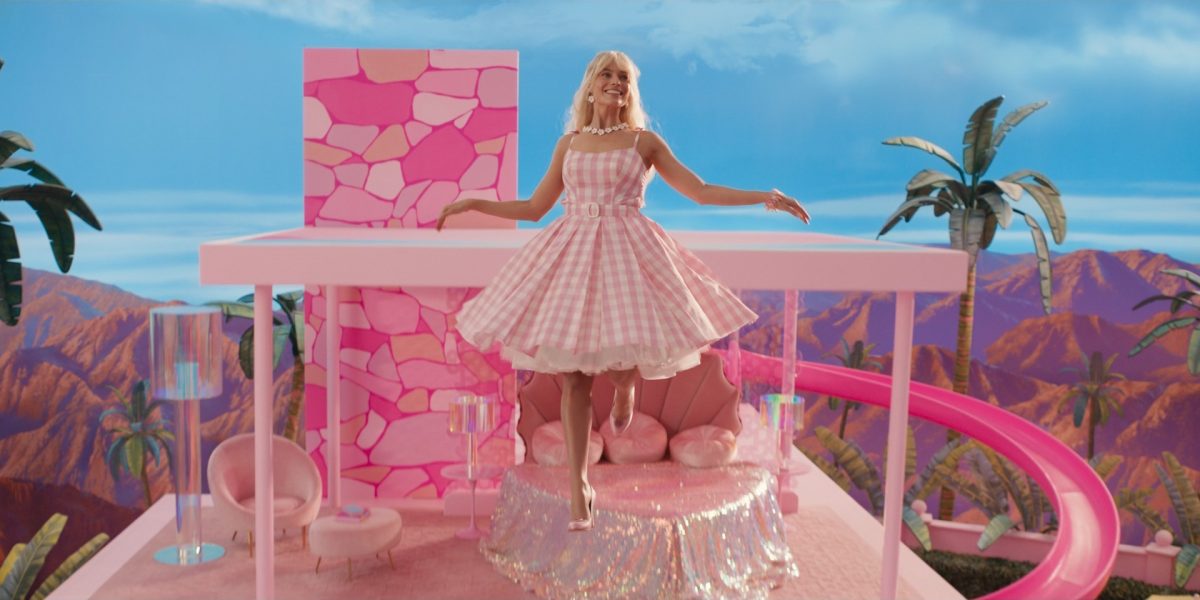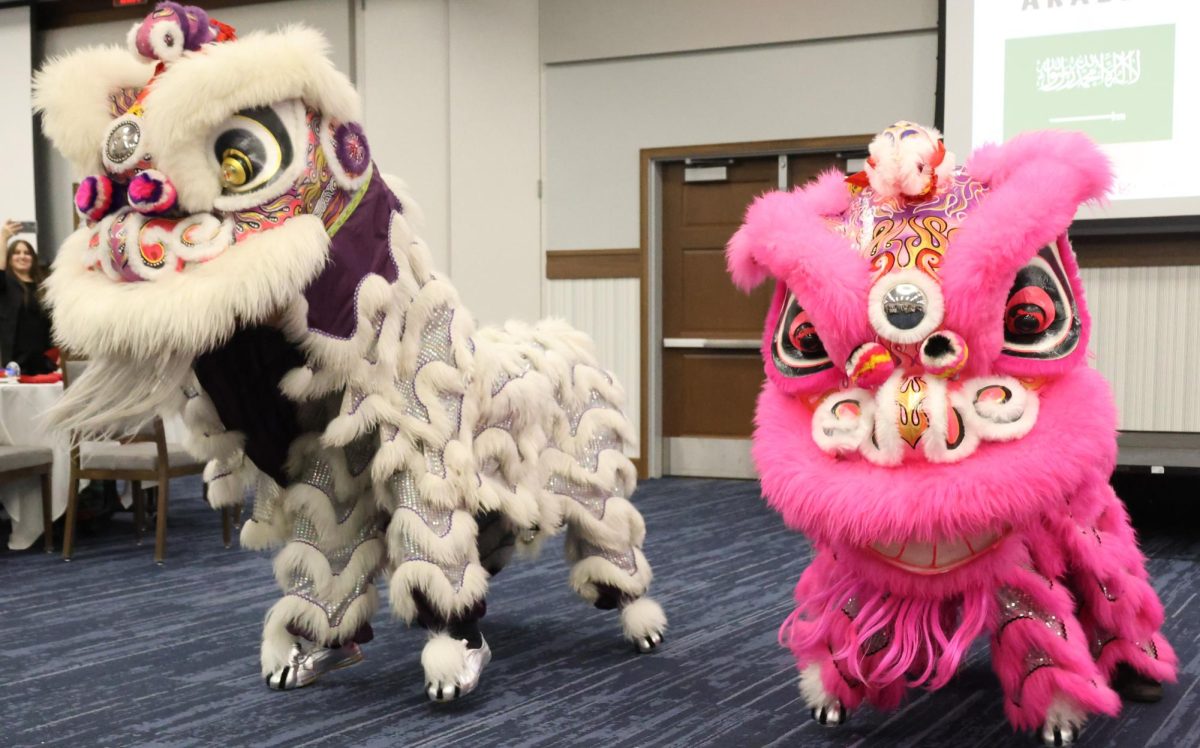The summer of 2023 will forever be remembered as the summer of Barbie. Now that award nominations are coming out and the movie has invaded streaming services, we may have another Barbie season.
It was announced this week that the film snagged nine Golden Globe nominations, among them best picture, director, actress and supporting actor. Its soundtrack garnered three nominations.
Whether on social media or in stores, “Barbie” was impossible to ignore. The highly anticipated film by indie filmmaker Greta Gerwig grossed $1.44 billion worldwide, and it is the highest grossing movie directed by a woman ever.
Despite being a massive success, Barbie left many fans, myself included, disappointed and confused. The disconnect between the glittery, abundant marketing and the film’s actual content was disheartening. This led to a considerable letdown for Barbie enthusiasts expecting the joy and escapism that Barbie has represented for decades for me, a major Barbie fan excited to see this movie.
Gerwig’s attempt to tackle the concept of the patriarchy fell short, barely scratching the surface of a complex issue. The Kens of Barbieland are meant to represent women in the Real World: submissive and powerless. And the patriarchy is represented by … horses and mini-fridges.
The narrative seemed to revolve around the men in Barbie’s life, prompting the question: Why not just name the movie “Ken?” Ryan Gosling’s performance has been deemed as award-worthy, receiving a Golden Globe nomination for supporting actor.

Barbie, as many young girls remember, is an icon meant to embody fun, joy and a carefree lifestyle. Instead, Gerwig started there but then took us into Barbie’s existential crisis and her desire to abandon her identity. The Barbie we know would never do such a thing. The very essence of Barbie is her unapologetic embrace of a perfect life.
The previews highlighted Barbie floating down the stairs, having a party every day with her friends and living a fabulous life – that is what the audience expected. We wanted to see Barbie shopping, having fun, and living the true Barbie life. Which we did get – for about 5 seconds.
The decision to turn her into a human was a puzzling decision and a notable departure from the character’s iconic roots. It’s understandable that Gerwig’s attempted messaging would include Barbie changing and emphasizing the importance of self-evolution to young girls, but did that have to mean turning her into a human being? Evolving Barbie from a doll to a human makes no sense.
The portrayal of her relationship with Ken also raised eyebrows. Barbie, who has always been depicted as a loving, caring, head-over-heels happy in her relationship, suddenly disappeared.
In the film, indifference and animosity were the only emotions Barbie felt toward Ken. While the film aimed to convey a message about female empowerment, independence and self-fulfillment; the execution felt forced and lacked the authenticity that fans expected.
I’ll give it to Gerwig’s cinematography and visuals. The glamourous and vibrant aesthetic of the set was impeccable, a standout element that deserves recognition. The set was pink and plastic, just like Barbie, and truly encapsulated the glory of the Barbie dreamhouse we played with as kids. The choice to create a physical set despite the norm of CGI was commendable, I just wish we got to see Barbie live in it more.

The film’s humor and entertainment value was on par with the plot of the film: an attempt at comedy with a dash of social commentary. The jokes written into the film were meant to appeal to its broad audience, instead resulted in a stale and lackluster experience. Gerwig attempted to throw jokes into the “serious” climax of the film, but that felt forced and unnatural.
When the soundtrack for Barbie was released in the promotional marketing, I was genuinely excited. Seeing Billie Eilish and Lizzo on the set list looked like a good sign. The soundtrack received three nominations by the Golden Globes in Best Original Song for songs by Billie Eilish, Dua Lipa, and Gosling’s “I’m Just Ken.”
However, the soundtrack was mediocre, not particularly impressive or disappointing. It met the basic standards but failed to exceed expectations. Featuring well-known artists like Eilish and Lizzo were great promotional tactics, offering familiarity without injecting innovation. Lizzo’s song came off as cliché but witnessing Barbie cry to Eilish’s song felt uncomfortably relatable. Despite a promising lineup, the soundtrack was just okay.
The pace of the movie also felt impossibly rushed. There were moments throughout the film where the pacing felt uneven, with some scenes happening in the blink of an eye. Barbie experiencing depression for the first time, since that’s the direction they chose to go in, could have benefited from more screen time. It appears the characters in the film were trying to get it over with as quickly as possible. It was difficult for the audience to fully immerse themselves in Barbie’s world, diminishing the impact of critical moments.
The disappointment stems from the stark contrast between the film’s promotional material and the film itself. The blissful, glamorous Barbie we saw in marketing was absent from the film. Instead, we were fed a detached narrative that was stripped away from the warmth generated by the Barbie brand.
As someone who grew up playing with Barbies, the film failed to capture the essence of what made Barbie an enduring and beloved icon. Gerwig’s decision to focus on societal issues at the expense of the Barbie character’s trademark joy and escapism left a void that was difficult to ignore. I wanted to see a film oozing fun, the way young boys and girls play with Barbie.
In the aftermath of the award hype, the cultural phenomenon that is Barbie will follow the same fate as the dolls themselves – it’s time to box it up and put it away.










